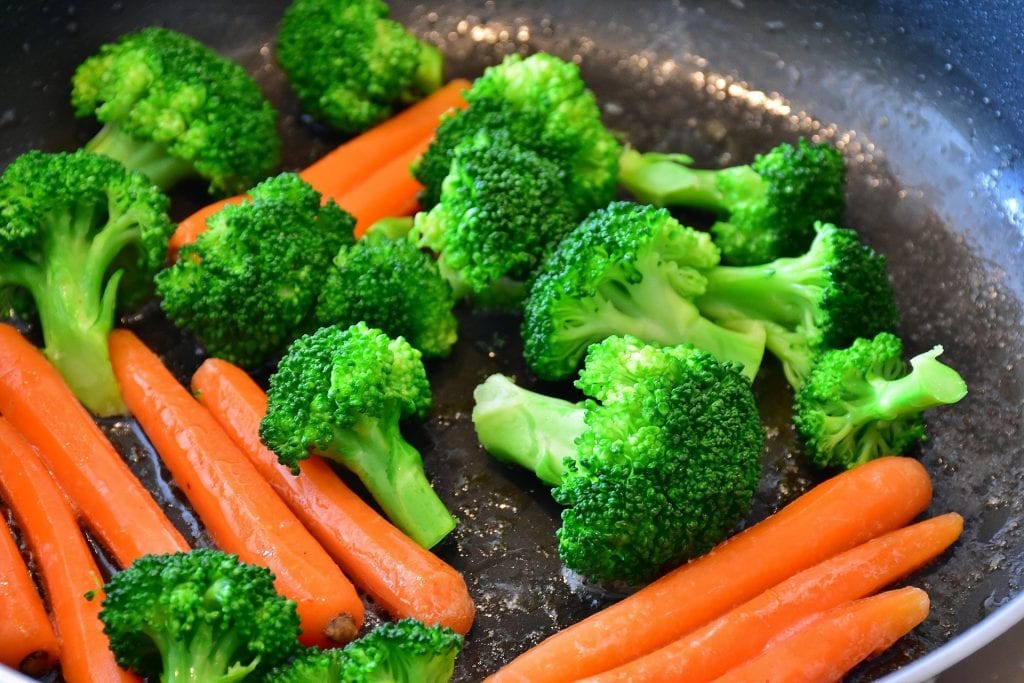Best Ways to Get Rid of a Bloated Stomach and Gas
Bloating is often caused by having too much gas in your digestive tract. It can leave you with a very uncomfortable tight and hard feeling in your stomach, even though it’s not usually a sign of anything serious, it can be embarrassing if accompanied by flatulence and belching.
For many, it’s just something that happens after an excessive occasion such as Christmas, but if it’s happening every day it may be a sign that your digestive system is not functioning properly.
Causes of bloating
- Eating and drinking too fast
- Gastritis
- Irritable bowel syndrome (IBS)
- Hormonal changes
- Crohn’s disease
- SIBO
- Food intolerance
- Constipation
- Coeliac disease

Eat more fibre
Even though High fibre foods can cause bloating at first, especially if you are not used to having much fibre in your diet. It is very beneficial to your digestion and your body will build up a tolerance to it after a short while. For this reason, It’s a good idea to increase your intake slowly and build it up.
It’s worth knowing that soluble fibre (Nuts and seeds, fruit, beans and peas) often produce more gas than foods with insoluble fibre, such as ( whole grains and vegetables).
The following foods are well known for causing gas/bloating issues and so increase slowly, or avoid altogether whilst you increase your fibre intake.
- Cauliflower
- Beans
- Broccoli
- Onions
- Brussel sprouts
IBS sufferers are generally advised to eat more fibre to help with symptoms, especially if you have IBS – C (constipation) but this does sometimes cause more gas.
The discomfort with increasing fibre is usually short-lived and in the long run, more fibre will be beneficial to your health, and your body will become more tolerant of it.
Keep a food diary
Some people are intolerant to certain foods. It’s not always obvious what food your body doesn’t like. So, it’s a good idea to keep a diary of what you eat and when you have an episode of bloating and gas you can see if there is a pattern to what you have eaten.
Often avoiding those items will be enough to avoid future issues. Dairy and wheat are common foods that people are intolerant to.
You should talk to your doctor before cutting out a whole food group though as you may need to eat other foods to avoid become deficient in Minerals or vitamins.
Avoid Swallowing too much air
To avoid this happening, you should
- Avoid excessively talking when you eat,
- Eat slowly, chewing each mouthful well.
- Avoid carbonated drinks with your food.
Follow the Low FODMAP diet
Many IBS sufferers are advised to follow a low FODMAP diet, this can help with bloating, gas and other IBS symptoms. But this diet can benefit anyone with bloating issues.
FODMAPs( fermentable oligosaccharides, disaccharides, monosaccharides and polyols.) are carbohydrates that some people cannot digest easily.
The diet was designed by researchers at Monash University and has been shown to help a vast majority of IBS sufferers with their symptoms.
I have read a few books on the subject but for a nice easy recipe book to follow, this one is brilliant. The Low-FODMAP IBS Solution Plan and Cookbook: Heal Your IBS with More Than 100 Low-FODMAP Recipes
Take a digestive enzyme
Sometimes bloating can be caused by food sitting for too long in your stomach and not digesting properly. Digestive enzymes can be really helpful for this by aiding the stomach with breaking the food down.
I was finding I was getting bloated in the afternoons after eating lunch and again after my evening dinner. I decided to give digestive enzymes ago and they really did help. They definitely seemed to help my body digest the food. I would take 3 with my lunch and 3 in the afternoon and it reduced my bloating quite quickly. I used Papaya enzymes and find them excellent – American health Papaya enzymes

Take Probiotics and eat fermented foods
Probiotics and fermented foods are a great way of restoring the balance of bacteria in your digestive tract, which can help reduce the bloat.
I was advised to try probiotics by my local health shop owner. He said if I didn’t notice an improvement in 3 weeks to come back and he would give me my money back. The health shop owner got to keep his money as I didn’t need to go back as it really did help.
It stopped the bloating, improved my bowel movements and just generally made my digestive system work better. These were the ones I was recommended and have used these ever since.
I have also tried to incorporate fermented foods into my diet, fermented foods include such things as Sauerkraut and Kimchi.
When first taking any of these though, you may find your bloating temporarily gets worse, mine did but only for a day or two then it started to improve. Starting on a low dose can help avoid this.
I buy these probiotics and they are now the only ones I use. Biocare probiotics 30 billion live bacteria

Drink Celery juice
This has become the trend that all the celebrities are doing. Having a 16oz glass of celery juice each morning and claiming it changed their lives. I was very sceptical at first and wasn’t expecting much, but this has really helped my digestive system in lots of ways.
My bloated stomach disappeared almost immediately after drinking this, and so I continued to take it each morning, (although I had only 8-10oz as opposed to the recommended 16oz, as I just found this too much).
It is thought to work by increasing the hydrochloric acid production in your stomach, which helps break down and digest your food.
Research has also found celery juice contains antimicrobial properties that help fight infections. It is also a gentle natural laxative, so helps keep your bowels regular.
Click here for tips of preparing Celery juice

Take Regular Exercise
Exercise can help improve your digestion and keeps things moving. It doesn’t have to be a full-on gym session, just a regular walk 3 or 4 times a week for 20 minutes will benefit your digestive system greatly and help reduce bloating
Reduce your Dairy intake
Dairy products contain Lactose, which is a type of sugar found naturally in milk products. If someone is lactose intolerant they may get symptoms such as Bloating, gas and diarrhoea.
It can be a good idea to cut out dairy for a few weeks and see if your symptoms improve. If they do then gradually add back hard cheese and butter to your diet, but try sticking with a lactose-free milk. I often drink Almond milk and love the taste; Oat milk is also a good alternative.
Improve your diet
Eating a healthy balanced diet will make a big difference to your whole digestive system. Avoid Processed food and refined carbohydrates, steering clear of ready meals, white bread and pasta. Eat fresh fruit and vegetables each day and cut back on alcohol.

Drink herbal teas
Peppermint
Peppermint has long been regarded as a herbal tea that soothes the digestive system, studies have shown it relaxes the gut and many IBS sufferers find it very beneficial.
Camomile tea
As a gastritis sufferer I don’t tolerate Peppermint tea very well and I find Camomile tea much better and calming. I have a slice of Fresh ginger with my tea too, and it definitely helps with bloating and gas taken an hour or so after a meal.
Fennel
Fennel has long been used to help with digestive issues such as bloating, constipation and stomach pain. They use the seeds of Fennel to make it and it has a very similar taste to liquorice.
Angelica root
This root tea has a bitter taste which is said to stimulate digestion juices, helping the body prepare for food. It’s used in the digestive bitter Iberogast. I have used this and it works really well taken before a meal.
It’s advised to avoid if pregnant, or ask you doctor first.
Relax!
Leading a stressful life can contribute to digestive issues like bloating, as your body cannot concentrate on digesting your food properly.
It’s important to not eat in a hurry and try and take your time over every mouthful, keeping as relaxed as possible.
Yoga and meditation are excellent ways to keep your body calm, and there are actually specific yoga positions that help with bloating and gas. For ideas on reducing stress in your life, see this page – 10 tips for a relaxed gut
